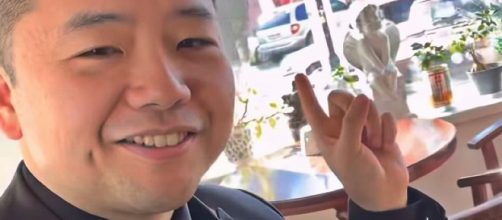The Russian invasion prompted nearly all the Chinese people in Ukraine to evacuate, but one man from Beijing decided to remain and tell about Ukrainian suffering on social media. More than 50 videos about the War in Ukraine had been posted by Wang Jixian, a 36-year-old software programmer in Odessa.
Wang's open sympathy with Ukrainians put him at odds with the pro-Russian sentiment prevailing in China's media. Wang's Chinese-language videos could be found at YouTube and Chinese social media platforms WeChat and Douyin. The Wall Street Journal's reporter Wenxin Fan said Wang had "called for peace and expressed solidarity with Ukrainians." The journalist said Wang had compared the Russian invasion to the invasion of China by Japan during World War II.
The reporter said Wang had "helped galvanize online voices in China opposed to Russia's actions."
'One of the boldest voices'
Writing in The New York Times, Chris Buckley said Wang was "one of the boldest voices challenging the Chinese state-controlled media's version of the war." Wang told Buckley his videos had drawn the wrath of nationalists, but the videos had also managed "to awaken at least some Chinese people and get them thinking for themselves."
Buckley noted that Wang's "most impassioned" videos had fallen victim to censors at WeChat. Nevertheless, Buckley said that more than 94,000 people were currently subscribing to Wang's WeChat channel.
China's media has become more pro-Russian
NPR quoted Wang saying he intended to stay in Odessa as long as possible.
If he were forced to leave, he would move to another part of Ukraine. He told the public broadcaster.
"The Ukrainian people don't want war," Wang told NPR. "People just want to live."
Coverage of the war by state-run media in China had developed a more substantial bias in favor of Russia. Against America, George State University Professor Maria Repnikova told NPR. China benefited from the war because it made it impossible for the United States to focus on China, Alexander Gabuev of the Carnegie Moscow Center said the public broadcaster.
His parents worry in Beijing
Wang told The Los Angeles Times that one of the reasons for his video blogging was that he wanted Ukrainians to know that there were Chinese people who opposed the invasion.
He told the paper that he declined to accept donations from his Chinese viewers and asked that they give to the National Bank of Ukraine instead.
Wang told The Los Angeles Times that his parents in Beijing thought he was making life difficult for himself, but he would continue posting videos until the end of the war.


